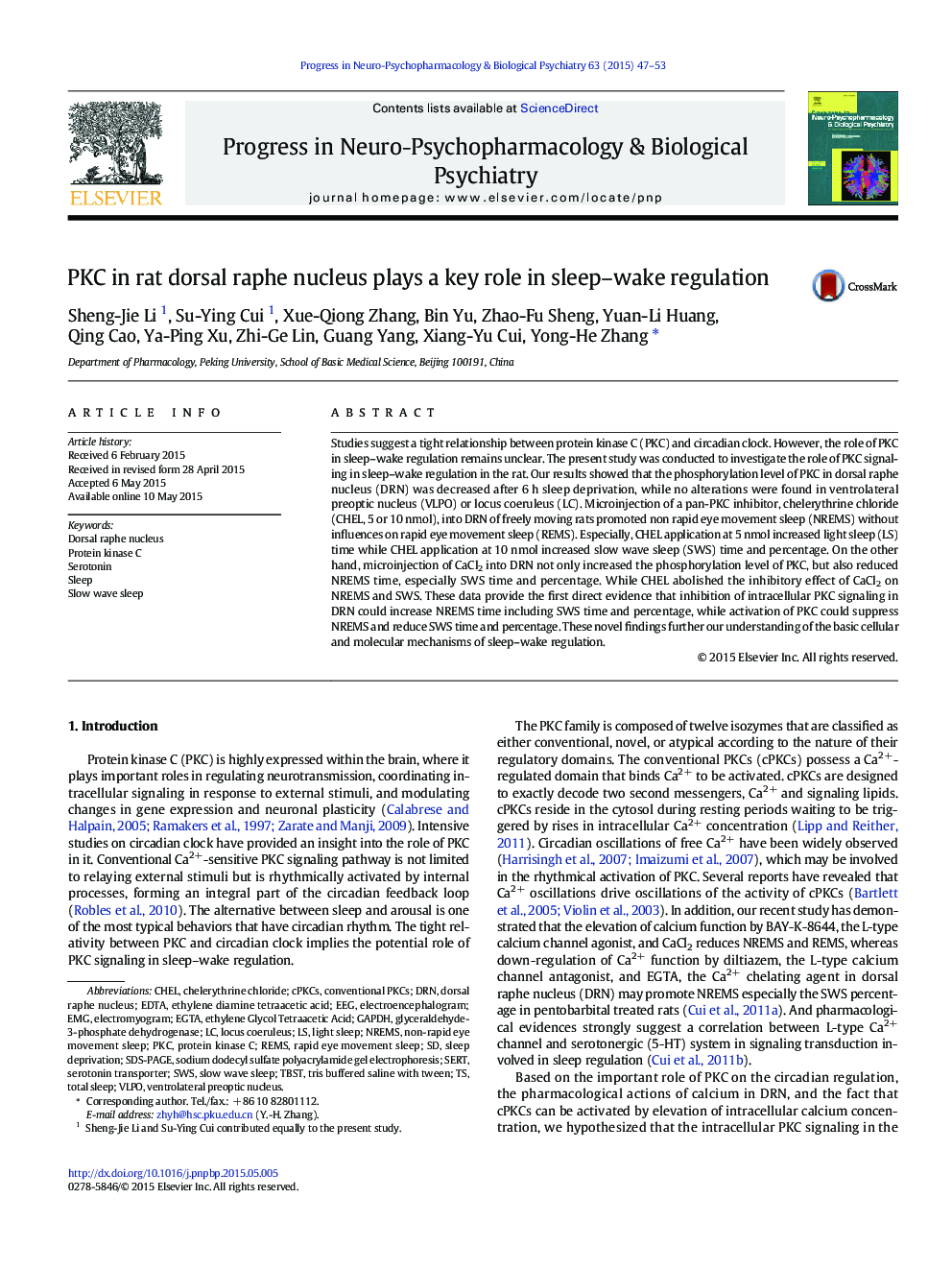| Article ID | Journal | Published Year | Pages | File Type |
|---|---|---|---|---|
| 5844190 | Progress in Neuro-Psychopharmacology and Biological Psychiatry | 2015 | 7 Pages |
â¢Sleep deprivation decreased pPKC level in DRN.â¢Inhibition of PKC by CHEL in DRN may promote NREMS, especially SWS.â¢Activation of PKC in DRN by CaCl2 may suppress NREMS, especially SWS.
Studies suggest a tight relationship between protein kinase C (PKC) and circadian clock. However, the role of PKC in sleep-wake regulation remains unclear. The present study was conducted to investigate the role of PKC signaling in sleep-wake regulation in the rat. Our results showed that the phosphorylation level of PKC in dorsal raphe nucleus (DRN) was decreased after 6Â h sleep deprivation, while no alterations were found in ventrolateral preoptic nucleus (VLPO) or locus coeruleus (LC). Microinjection of a pan-PKC inhibitor, chelerythrine chloride (CHEL, 5 or 10Â nmol), into DRN of freely moving rats promoted non rapid eye movement sleep (NREMS) without influences on rapid eye movement sleep (REMS). Especially, CHEL application at 5Â nmol increased light sleep (LS) time while CHEL application at 10Â nmol increased slow wave sleep (SWS) time and percentage. On the other hand, microinjection of CaCl2 into DRN not only increased the phosphorylation level of PKC, but also reduced NREMS time, especially SWS time and percentage. While CHEL abolished the inhibitory effect of CaCl2 on NREMS and SWS. These data provide the first direct evidence that inhibition of intracellular PKC signaling in DRN could increase NREMS time including SWS time and percentage, while activation of PKC could suppress NREMS and reduce SWS time and percentage. These novel findings further our understanding of the basic cellular and molecular mechanisms of sleep-wake regulation.
